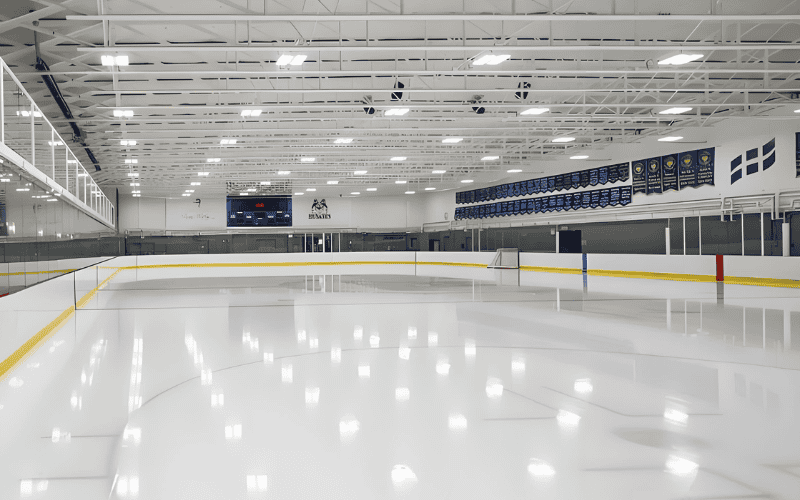Unique Advantages of Steel Structure Skating Rinks
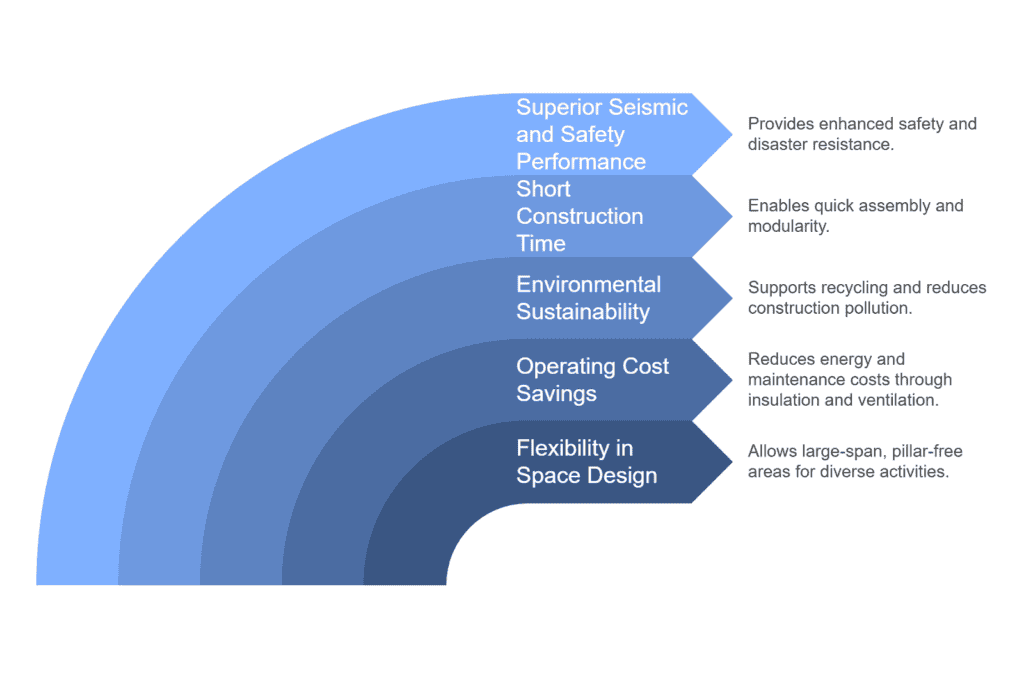
Picture 1. Advantages of Steel Structure Skating Rinks
1. Flexibility in Space Design
One of the main advantages of steel structure skating rinks is the ability to design large-span, pillar-free spaces. This design provides a more spacious and flexible indoor environment, meeting the diverse needs of different activities and maximizing the use of the venue.
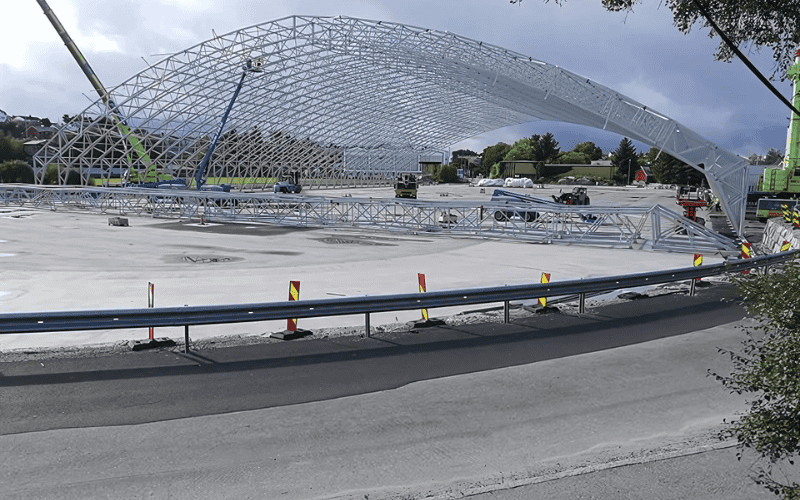
2. Operating Cost Savings
Using high-quality insulation materials in steel structures helps reduce cooling energy consumption significantly. Additionally, the excellent ventilation capabilities of steel buildings help maintain optimal humidity and temperature levels, preventing facility corrosion or mold growth, which further lowers maintenance costs.
3. Environmental Sustainability
Steel is highly recyclable, aligning with green building principles. The prefabrication process in factories and the quick assembly at the construction site reduce pollution during construction, contributing to sustainability and carbon-neutral goals.
4. Short Construction Time
Steel structures are highly modular, which greatly reduces construction time compared to traditional building methods. This rapid deployment is ideal for projects with tight deadlines.
5. Superior Seismic and Safety Performance
Steel structure skating rinks offer better seismic resistance and safety features, making them more secure in the event of natural disasters like earthquakes.
Applicable Scenarios and Market Demand
1. Community Skating Rinks
Steel structure skating rinks are perfect for community centers, providing residents with space for daily recreation and exercise. The fast construction and cost-efficiency make them an ideal solution for community projects.
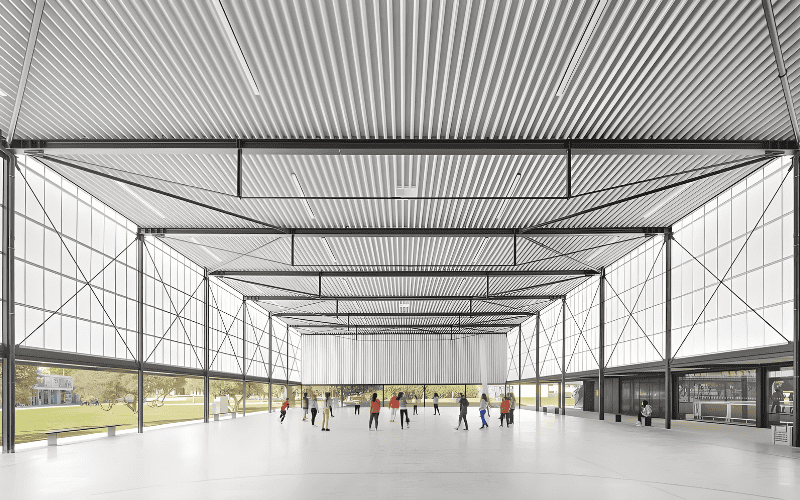
2. Commercial Skating Rinks
Steel structure rinks are an excellent choice for commercial spaces such as shopping malls and entertainment centers. They offer flexible design options that increase the appeal of the venue and enhance its commercial value.
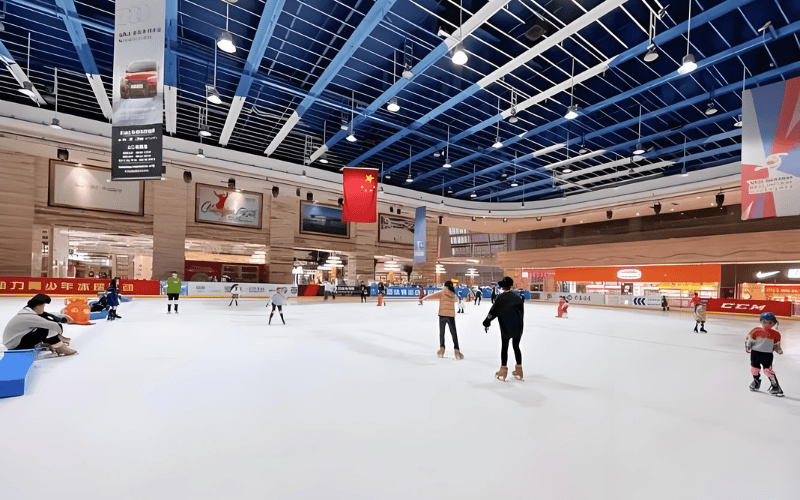
3. Temporary or Multi-Function Venues
Steel structure skating rinks can be easily disassembled and reassembled, making them ideal for temporary events or multi-functional venues. Their flexibility and mobility provide convenient solutions for various activities.
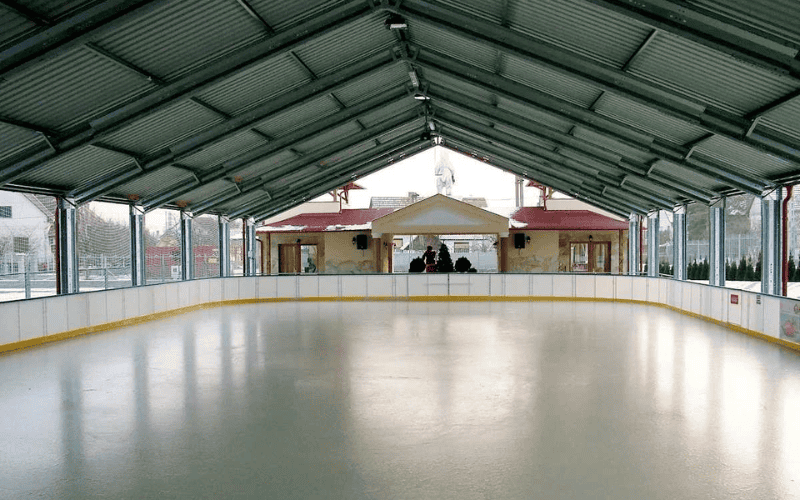
4. Professional Competition Venues
Steel structures meet the high standards required for international competitions. Their large-span design and high safety performance make them suitable for professional sports venues.
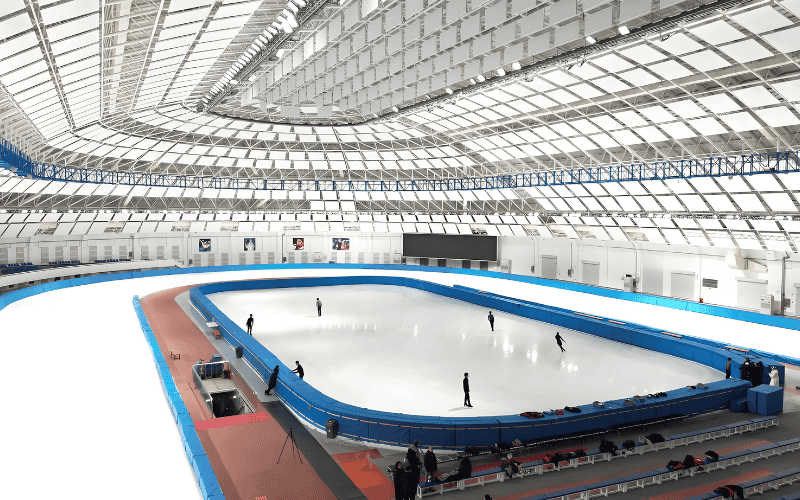
Comparison of Steel Structures with Other Construction Systems
Skating rinks are not limited to steel structures, but also other construction systems. We’ll give you a quick comparison to help you understand why steel skating rinks are the right choice.
1. Steel vs Wood Structures
Compared to wood structures, steel is more durable, with better resistance to moisture and weather conditions. Wood structures are more susceptible to decay and cracking, making them less suitable for environments with high humidity.
2. Steel vs Membrane Structures
Steel structures are better suited for long-term, permanent use, offering superior stability and durability. Membrane structures are typically more suitable for temporary or seasonal ice rinks, but they do not provide the same level of durability or wind resistance as steel.
3. Steel vs Concrete & Reinforced Structures
Steel structures offer shorter construction time and greater design flexibility compared to concrete and reinforced structures. Steel is also more environmentally friendly, producing less waste during construction and enabling more customizable designs.
4. Steel vs Prefabricated Buildings
While prefabricated buildings offer modular design, steel structures provide superior long-term stability, seismic resistance, and design flexibility, making them more suitable for multi-purpose ice skating rinks.
Table 1. Steel Structure vs. Other Construction Systems
| Feature | Steel Structures | Wood Structures | Membrane Structures | Concrete & Reinforced Structures | Prefabricated Buildings |
|---|---|---|---|---|---|
| Durability | High (resistant to moisture, corrosion) | Moderate (prone to rot, decay) | Moderate (weather sensitive) | Very High (strong, long-lasting) | Moderate to High (depends on material) |
| Construction Time | Fast (modular design, quick assembly) | Slow (requires extensive onsite work) | Moderate (depends on type of membrane) | Slow (long curing and construction time) | Fast (pre-fabricated modules) |
| Design Flexibility | High (large spans, custom designs) | Low (limited by structural strength) | Moderate (customizable for temporary setups) | Low to Moderate (limited by concrete forms) | High (modular and customizable) |
| Seismic Resistance | Excellent (highly flexible and resilient) | Low (vulnerable to seismic shifts) | Low (not ideal for seismic areas) | High (rigid, robust structures) | Moderate (depends on design) |
| Environmental Impact | Low (recyclable, sustainable) | Moderate (depends on source of wood) | Moderate (depends on materials used) | High (high energy consumption in production) | Low (recyclable materials) |
| Cost-Effectiveness | Moderate to High (depends on design) | Low to Moderate (cheaper material) | Moderate (installation costs vary) | High (expensive materials and labor) | Low to Moderate (prefabricated cost) |
| Long-Term Maintenance | Low (resistant to weather and wear) | High (prone to decay and damage) | Moderate (requires frequent checks) | Low to Moderate (maintenance of concrete) | Low to Moderate (easy repairs) |
Environmental and Policy Support
With the growing global focus on sustainability, steel structure buildings contribute significantly to achieving green building standards and carbon-neutral goals. Steel structure skating rinks meet global green building certifications (such as LEED), and their energy efficiency, recyclability, and use of eco-friendly materials make them an excellent choice for sustainable projects. Government subsidies and green building policies also provide further opportunities for steel structure skating rinks.
